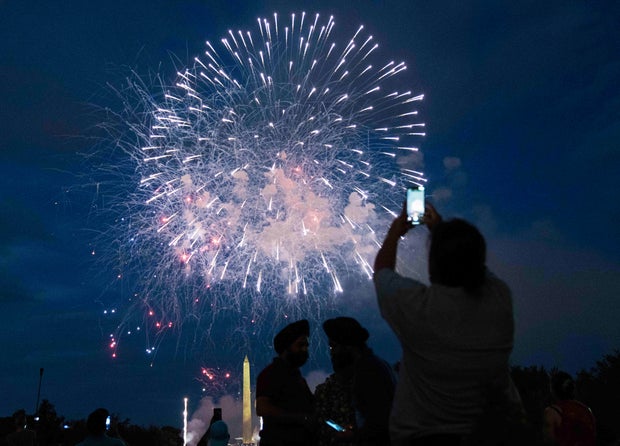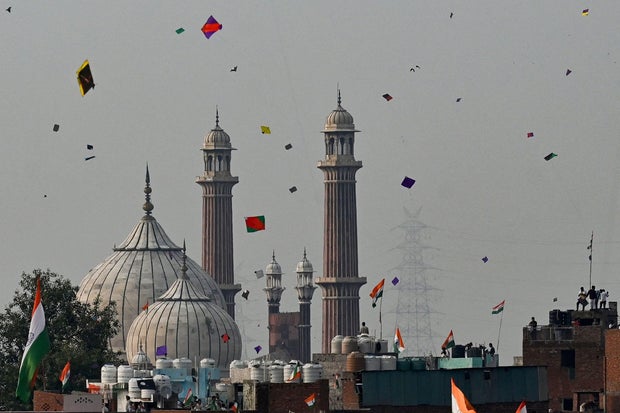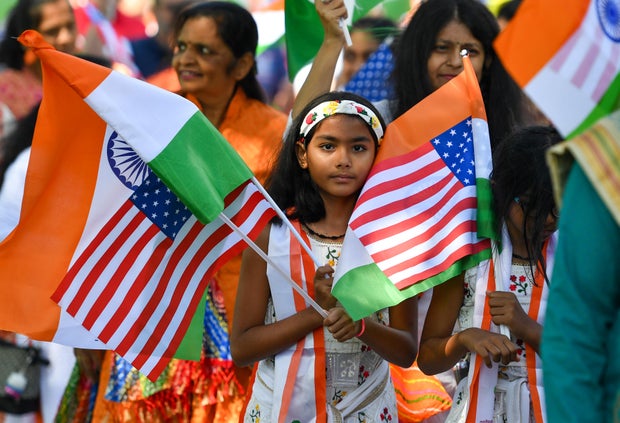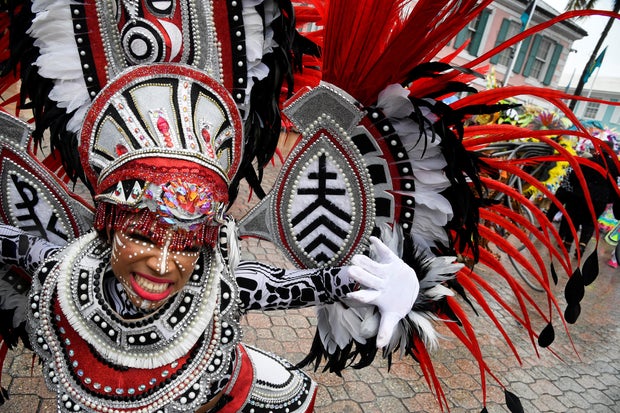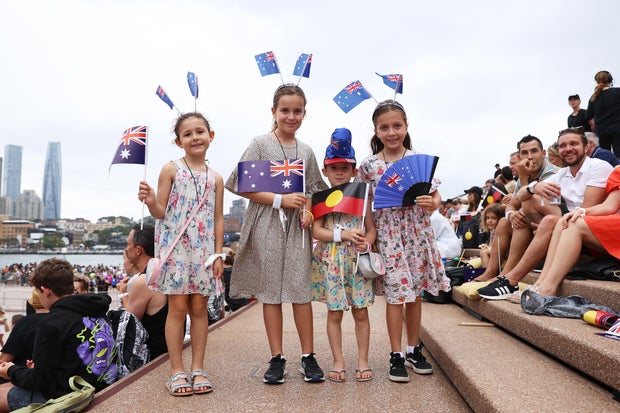The U.S. celebrates July 4, but independence from Britain is marked around the globe. Here’s a look at how and when different countries celebrate.

- by Admin
- July 4, 2024

On July 4, the United States celebrates its independence from Britain with displays of fireworks, barbeques, shopping — and for an estimated 70 million citizens this year, travel.
The United States’ celebration is held on the anniversary of the Second Continental Congress’ adoption of the Declaration of Independence in 1776. But America isn’t the only country that celebrates independence from Britain. Much of the global population — around one-fifth of the world, according to Guinness World Records — were subjects of Great Britain prior to 1914.
Minh Connors/The Washington Post via Getty Images
Some countries don’t celebrate their independence from the United Kingdom, but instead dedicate a day to celebrating their formation. Others celebrate similarly to the United States, on the day the country either declared or formally gained independence from the United Kingdom.
Here’s when and how several former British colonies celebrate their freedoms.
Kite flying on India’s Independence Day
India celebrates its independence on August 15, marking the end of 200 years of British rule in 1947 — when the Indian Independence Act separated British India into India and Pakistan — and its ascendence to becoming the world’s largest democracy.
The prime minister starts the day by raising the country’s flag at the Red Fort in Old Delhi, marking the anniversary of the first time the modern flag was officially hoisted in the country.
ARUN SANKAR/AFP via Getty Images
Following the flag-raising, there is a parade — but most families celebrate the day by flying kites. Indians used to fly kites as a form of protest. In 1927, slogans were written on kites deriding the Simon Commission, a group appointed by the British Conservative Government to report on the workings of the fledging Indian constitution. Since then, kites have been seen as an integral part of protest — and subsequent freedom.
As Independence Day is one of three major national holidays, many people have the day off and gather on streets, beaches and other locations to fly kites of various colors.
Aimee Dilger via Getty Images
Bahamas celebrates independence with Junkanoo
Independence Day in the Bahamas is celebrated annually on July 10. After 300 years of British rule, the Bahamas became a fully independent nation in 1973.
Bahamians start their celebrations 8 to 10 days before July 10, marking the momentous occasion with numerous cultural activities and events. Its most famed celebration is Junkanoo, a vibrant Bahamian street parade with music, dancing and elaborate costumes.
/ Getty Images
Although the exact origins of Junkanoo are unknown, a popular belief is that the traditions evolved from the days of slavery and now represent the Bahamian culture, according to the Bahamas.com. There is also a Junkanoo parade on Boxing Day, which takes place the day after Christmas.
Australia’s independence marks the arrival of convicts
Australians celebrate Australia Day annually on January 26. The day isn’t tied to independence from Britain — but instead, marks the day that the first convict ships arrived from the United Kingdom.
It’s the Commonwealth’s only public holiday celebrating the date of physical colonization, rather than the date of the country’s independence or another significant day.
Don Arnold via Getty
Many Australians celebrate the summer holiday with barbeques. Australians also honor the Aboriginal and Torres Strait Islander people, who inhabited the land for 65,000 years, according to Australia Day Council.
It is also a day when many new citizens are minted — the country added over 22,000 new Australians in 2024, according to the Australian Ministry for Immigration, Citizenship, and Multicultural Affairs.
The Latest News
-
December 21, 2024Inside Britain’s saddest shopping centre: Town centre mall empty just DAYS before Christmas as depressed locals say ‘it’s a disgrace’
-
December 21, 2024High street giants plot new warning to Treasury over retail jobs
-
December 21, 2024Travel news live: Traffic chaos to hit Christmas getaway as weather warnings issued
-
December 21, 2024Daily horoscope: December 21, 2024 astrological predictions for your star sign
-
December 20, 2024Telemark Sprint World Cup: Jasmin Taylor wins gold for Great Britain
